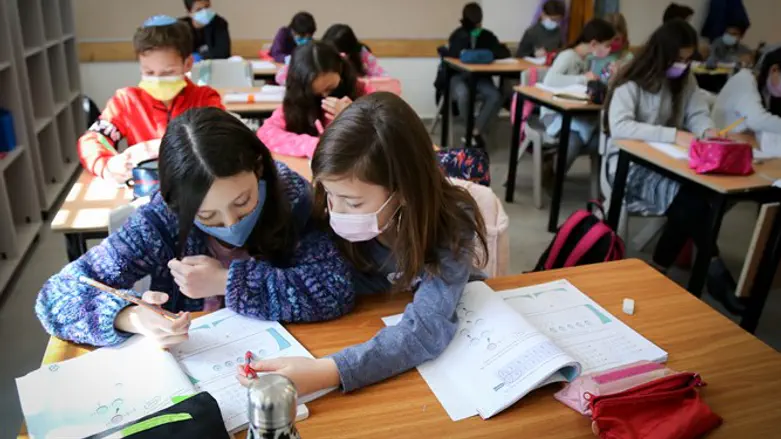
Concerns have arisen among some parents, educational psychologists, and teachers that when school starts, there may be social ramifications for children who do not receive the coronavirus vaccine, Israel Hayom reported.
"Classes may be split into two social categories - those children who are vaccinated, who excommunicate those who are unvaccinated," one middle school teacher from central Israel told Israel Hayom. "This may cause commotion and fighting among parents as well."
"Imagine to yourselves a situation in which a seventh-grade student, who just started a new school, and his classmate refuses to sit next to him because he's not vaccinated. Children are very aware - this will cause a lot of problems."
Education Minister Yifat Shasha-Biton (New Hope) has refused due to these concerns to allow the vaccine to be administered during school hours, claiming that "the Education Ministry's job is to educate."
However, Israel Hayom noted, the conflict already exists and not just in schools but on buses, at bar and bat mitzvah parties, and even among students studying together for tests. In addition, students who are unvaccinated will need to quarantine for one week after exposure to a confirmed patient, while under the current policy, vaccinated students will not be required to quarantine.
Dr. Anabella Shaked, founder of the Adler School of Professional Psychology in Israel, told Israel Hayom: "With the start of the school year, an unvaccinated child may become a target for negative attention from the other children in his class."
"Usually, the lack of an immunization is not the problem itself, but the trigger for violence or aggression, which is in the class' air," she clarified, adding that "the concern is that the unbridled attacks we see on social media will come to the schools as well."
When asked how such events can be prevented, Dr. Shaked said that it is important to initiate class discussions and give expression to everyone's opinions and feelings, and to try to reach agreements. She added that "handling this must be systemic, with the entire class, and focus on increasing empathy."
